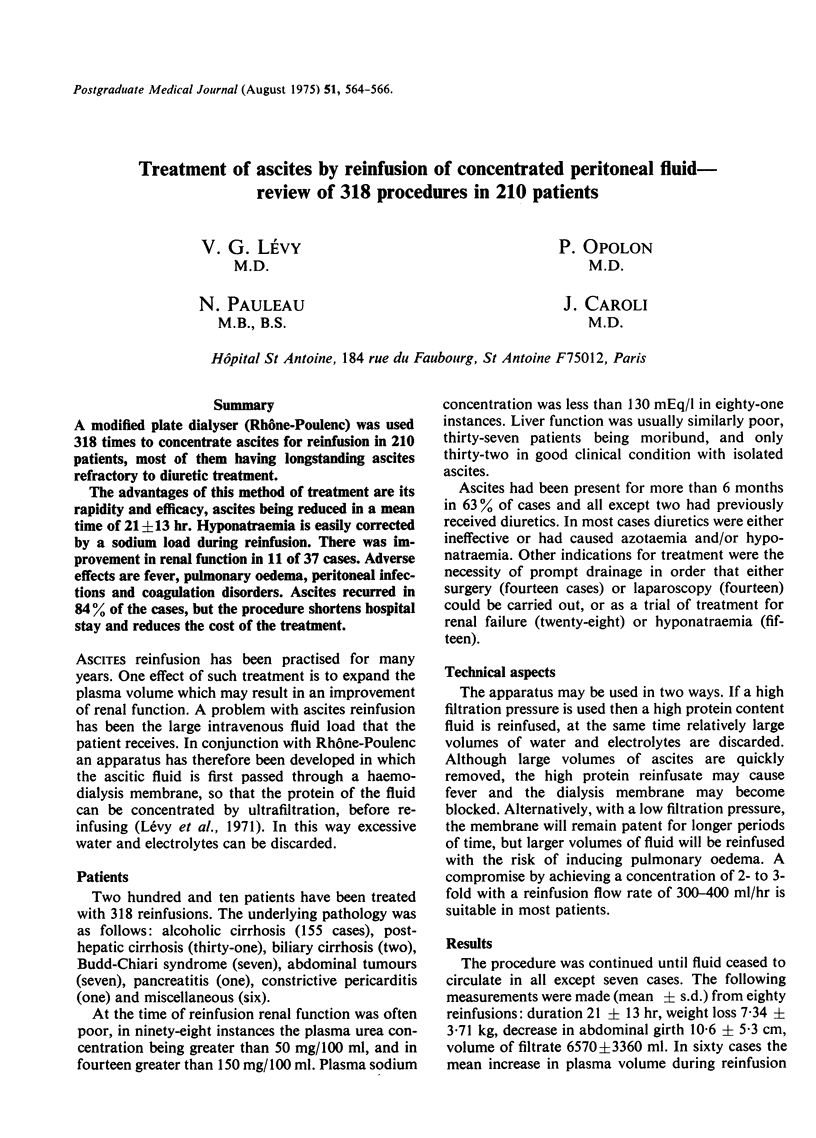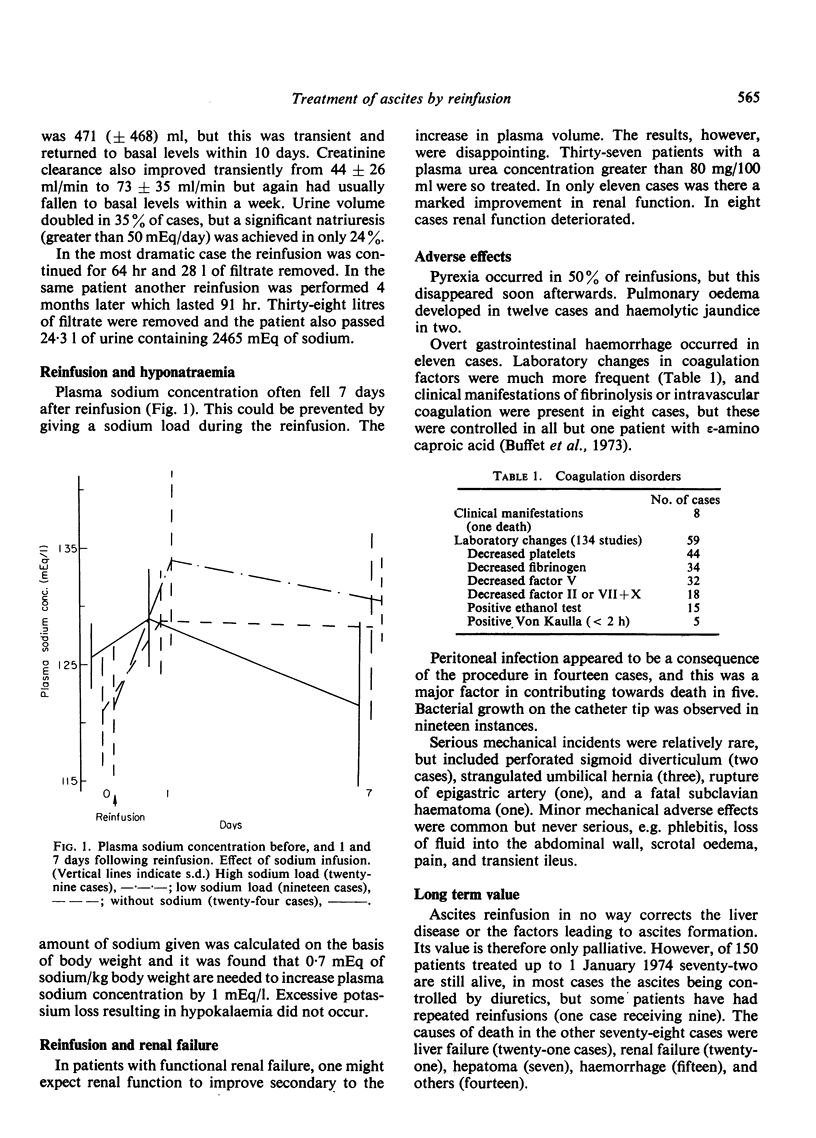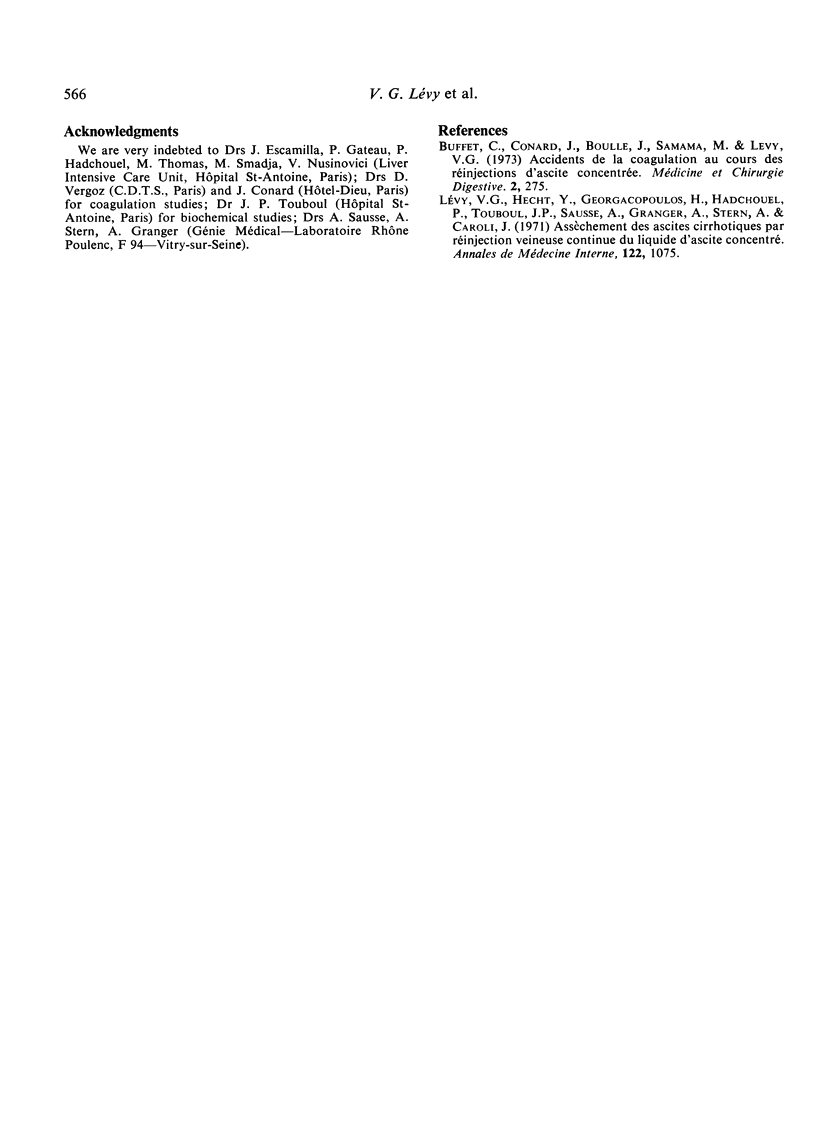Abstract
A modified plate dialyser (Rhône-Poulenc) was used 318 times to concentrate ascites for reinfusion in 210 patients, most of them having longstanding ascites refractory to diuretic treatment.
The advantages of this method of treatment are its rapidity and efficacy, ascites being reduced in a mean time of 21±13 hr. Hyponatraemia is easily corrected by a sodium load during reinfusion. There was improvement in renal function in 11 of 37 cases. Adverse effects are fever, pulmonary oedema, peritoneal infections and coagulation disorders. Ascites recurred in 84% of the cases, but the procedure shortens hospital stay and reduces the cost of the treatment.
Full text
PDF


Selected References
These references are in PubMed. This may not be the complete list of references from this article.
- Buffet C., Conard J., Boulle J., Samama M., Levy V. G. Accidents de la coagulation au cours des réinjections d'ascite concentrée. Med Chir Dig. 1973;2(5):275–280. [PubMed] [Google Scholar]
- Lévy V. G., Hecht Y., Georgacopoulos H., Hadchouel P., Touboul J. P., Sausse A., Granger A., Stern A., Caroli J. Assèchement des ascites cirrhotiques pr réinjection veineuse continue du liquide d'ascite concentré. Ann Med Interne (Paris) 1971 Nov;122(11):1075–1085. [PubMed] [Google Scholar]


